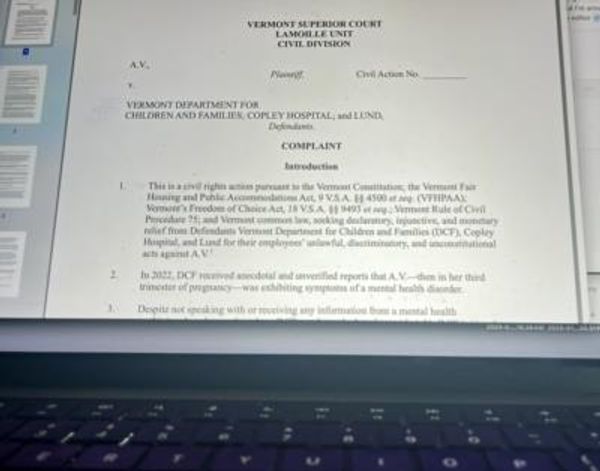
Australia’s Industry and Science Minister Ed Husic says he wants to shake up the way the federal government gives billions of dollars each year to companies. Australia is getting worse at making things, he says. But rather than choosing an outsider — someone who might challenge the status quo — to lead this shake-up, Husic has chosen Tesla chair and partner at Australia’s biggest venture capital fund Robyn Denholm, who has many reasons to keep things the way they are.
Husic likes penning op-eds about his policy agenda for The Australian Financial Review. In the past five years he has published seven articles for the paywalled publication, which is targeted at business professionals and costs at least $700 a year. It invites a question: who is Husic trying to win over? Is it Australian voters at large, or is it a narrow set of stakeholders who have a vested financial interest in the schemes he presides over?
His latest contribution is about an “extensive review” of a scheme that provides tax offsets for research and development expenditure, Australia’s Research and Development Tax Incentive scheme (R&DTI).
The scheme is designed to encourage companies to undertake R&D activities and to do this in Australia. It dolled out $11.2 billion in FY22 to over 10,000 companies. Companies that are profitable can claim a tax offset, while unprofitable companies (e.g. start-ups) can receive a cash refund for eligible expenditure. While large companies such as Atlassian and CSL are large claimants, 48% of recipients are small businesses.
In this week’s op-ed, Husic opines that the scheme is currently falling short of its goal of increasing Australian investment in R&D: “Today Australia’s investment in R&D sits at a measly 1.68% of gross domestic product. Twenty years ago, that number was 2.24%.” He notes that Australia ranks 93rd in the world for economic complexity and has fallen 33 places since 2000. Husic’s strategic review seeks input from “everyone with an interest in our long-term prosperity”.
To chair the review, Husic has appointed Denholm. There’s no doubt that Denholm brings a wealth of experience — she is the chair of Tesla and the Australian technology industry representative group Tech Council of Australia. She’s also an operating partner at Blackbird Ventures — Australia’s largest venture capital fund, backed by Future Fund and several superannuation funds.
But it’s precisely because of her involvement in these other organisations that Denholm has interests other than the long-term prosperity of Australia.
Blackbird Ventures is chaired by founder and CEO of Atlassian Mike Cannon-Brookes. Cannon-Brookes is also an LP (investor) in the Blackbird fund, and a trusted adviser to its partners. And in FY22, Atlassian was the greatest beneficiary of the R&DTI, receiving a $200 million rebate.
In addition, three of Blackbird’s investee companies were among the top 30 recipients in FY22 — rocket maker Gilmour Space and LiDAR manufacturer Baraja both claimed $38 million, while WiFi platform Morse Micro claimed $27 million. These companies are also among the largest positions in Blackbird’s funds, having collectively received over $100 million of investment. For these cash-burning start-ups, the R&DTI is a direct cash injection that extends their runway.
VC funds have their own incentives and constraints. When their investments are doing fabulously well, their incentives are largely aligned with Australia’s prosperity. But when certain investments start flailing, their incentives can become misaligned. VCs have an incentive to keep their investments afloat, because write-offs are reputationally damaging and hamstring the VC’s own fundraising prospects. In these cases, a VC might want companies to be able to access runway extensions via the R&DTI, even if it’s not the most efficient way to drive innovation in Australia.
Denholm’s role with the Tech Council of Australia is awkward, too. The TCA is an organisation whose membership comprises large technology companies such as Google, Stripe, Canva, and Airwallex, as well as VC funds such as Blackbird, Square Peg and Airtree. The Tech Council’s remit is to advocate for the interests of its members; many of whom have something to gain financially from the R&D scheme.
Denholm’s roles mean she is connected to many of the people and organisations who will be most affected by R&D reform. Of course a thriving local tech sector would be great for the Australian economy and for our long-term prosperity. However, her connections are with a narrow set of interests whose incentives are not always aligned with the broader strategic intent of the scheme.
Perhaps Husic’s appointment of Denholm to chair the R&D review stems from the same impulse that drives him to pen op-eds for the Financial Review. Perhaps it is the impulse of a man who is interested in cosying up to tech elites, not of a minister interested in driving rigorous reform that would shore up Australia’s future prosperity for all.
Have something to say about this article? Write to us at letters@crikey.com.au. Please include your full name to be considered for publication in Crikey’s Your Say. We reserve the right to edit for length and clarity.







